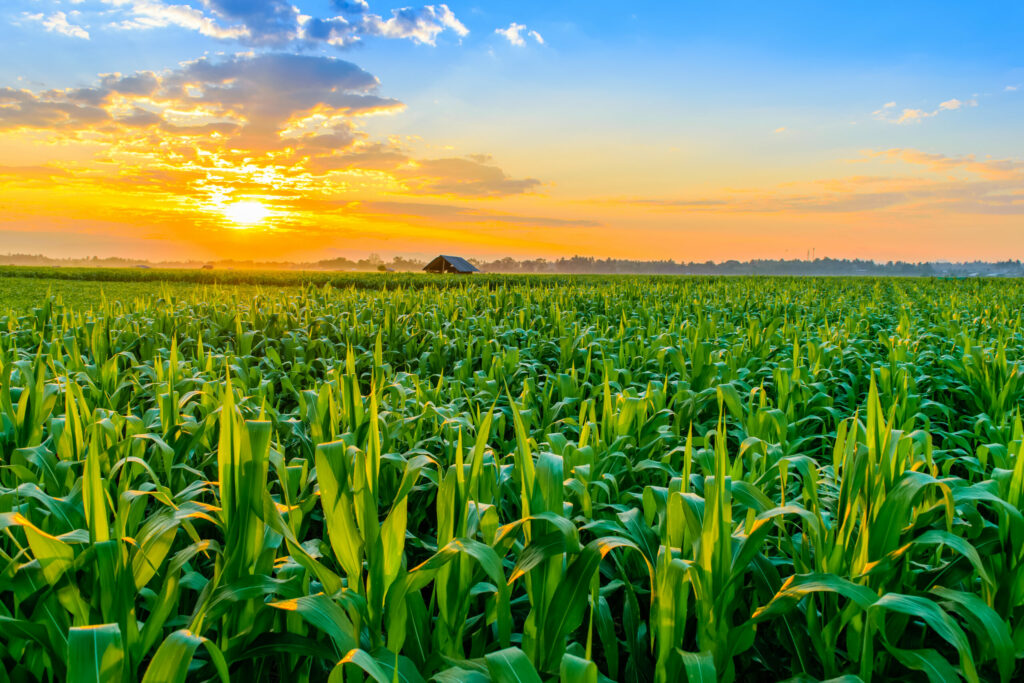NOTE: This article initially ran in the July 2022 issue of the Rockford Chamber VOICE.
Why is farmland a good investment?
Farmland can be a valuable component of your investment strategy, providing diversification along different asset classes. Often characterized by a slow but steady return, farmland can be a stable, relatively safe place to park long-term capital. Farmland also can be valuable as a lending security for other higher-risk investments. Just like investing in any asset class though, whether it be individual stocks, bonds, hedge funds, or some other investment, it is important to understand the transactional considerations of farmland.
Prime season for buying and selling farmland
The prime season for buying and selling real estate tends to be in the dead season for the agricultural community – typically stretching from November through February. This matches up both with the end of harvest season and before the beginning of planting season when many farmers and farm investors evaluate their upcoming operational needs and capital investments in their farm operations. Accordingly, many farm leases expire or are up for renewal during that season, which makes it an ideal time to sell farmland free of a farming tenant’s lease.
Valuing farmland and the sale process
While farms are classified based on their productivity index (“PI”), a farm’s value will also reflect its development value with farms bordering industrial or commercial corridors garnering a premium. Farm sales tend to be either via real estate agent or by auction, and the latter is strongly favored for higher class farmland. Many auctioneers will require an earnest money payment of 10% or more at the close of the auction. A successful bidder, whether at auction or via real estate agent, should expect to close within 30-45 days. Knowledgeable legal counsel can be valuable in helping an investor navigate the unique aspects of agricultural real estate transactions.
After the farmland investment, what’s next?
Beyond entering into the purchase contract, a farm investor needs to consider what type of landlord they intend to be. Some landlords maintain a simple system of cash rent – garnering $150 -$300 an acre depending on the quality of the farm. Other landlords engage in a crop share rent arrangement, by which they partner with their farmer tenant – splitting costs and receiving a share of the harvest, which the landlord can market and sell independent of the tenant. Which system of rent is appropriate for a landlord depends on their risk tolerance and knowledge of farming practices and grain marketing.
Unlike an investment in stock listed on the New York Stock Exchange, farmland may involve ongoing capital investment, including in the periodic installation of drainage tile and the application of longer-term inputs – such as phosphates or other fertilizers – to maintain a high productivity index and to protect the sales value of the farmland. Farming tenants can be valuable sources of information as to managing the nutrient levels and the productivity of the land itself.
Despite the knowledge gaps that some investors will face, farmland can be a great investment. After all, they aren’t making more land. Potential farm buyers are encouraged to consult with their legal advisors to determine a starting point for their personal due diligence. Owning a farm can be an important tool to teach children about where their food comes from and about America’s farming heritage. Happy investing!
Daniel Huntley is an attorney and partner at WilliamsMcCarthy LLP. A product of multiple generations of farmers, he emphasizes his practice in corporate, real estate, estate planning, and agricultural law. He can be reached by phone at 815-987-8980 or by email at dhuntley@wilmac.com.





